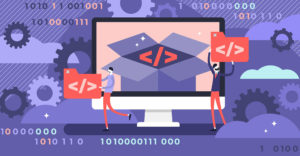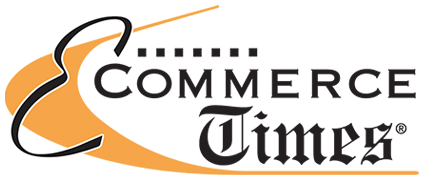Not everyone who knows how to code software gets rich quick, if at all. But extra money can be generated from software coding as passive income from side projects or independent distribution of mobile apps and more.
Software coders typically work for commercial entities developing internal applications. Some coders contract software creation projects as independent software developers. Much like freelance writers, however, software coders all do not work for large software development operations. Many coders, especially those writing open-source software, are not in a position to demand top-notch payment for their coding skills.
Of course, talented independent coders can focus on writing the next great killer application. In such cases, the software creator can sell the product directly. But just like freelancers in any industry or trade, selling your product with enough volume to get rich quick is a dream that often falls flat.
Instead of rolling out commercially marketed and paid-for product and hoping for big profits, software coders can produce projects as freeware or open source and still make money. Even if they have another job, coders can develop and earn from their own projects without going commercial. The monetary rewards may trickle rather than flood into their bank accounts. But earning additional income as a software code writer sure is a better result than doing it as a hobby.
Coders are in high demand right now. The key is knowing how to monetize your software creations. You can do this even if you distribute your code for free.
You can offer your services to create a steady cash flow, regardless of what your full-time job may pay. Branching out as an independent coder can also provide the freedom of opportunity to shape your own career path.
Software Monetization Strategies
An effective way to get started making money on software is to launch a micro-SaaS offering by creating a software-as-a-service business, either on your own or with a small team of fellow coders. Tyler Tringas lays out all you need to know about this specialized slice of entrepreneurship in his e-book “Bootstrapping a profitable SaaS Business.”
For example, you could build an iOS or Android app. With a product in hand that you built yourself, you can tap into Google Play and Apple’s App Store. These are two of the biggest app marketplaces with 2.7 million and 1.8 million available apps respectively.
According to Sensor Tower, global app revenue grew 32 percent year-over-year in Q3 2020 to more than $29 billion. Global app spending approached $65 billion in the first half of 2021. That was up more than 24 percent YoY.
A second approach is to monetize one or more open-source projects you create. Developers earn money from successful open-source projects. Of course, you may have to double down on marketing to spread the word about the software’s existence.
Monetizing your software does not have to be overly complicated. Use similar approaches to content producers that display their videos on their own YouTube channels. YouTubers generate revenue from sponsorships and high channel views for their how-to and other topic videos they upload to the platform.
Another good method to generate income is putting donation buttons on your website. This is a strategy that an increasing number of Linux distribution developers use. Clever low-key methods like a “Buy Me a Coffee” button gives people a way to support you through donations or tips. Another option is GitHub sponsors. GitHub provides multiple sponsorship tiers that set monthly payment amounts and benefits.
Also consider what is traditionally called a freemium pricing model for your software. Offer a basic free version of your coding project. Then give satisfied users an opportunity to purchase a pro version with more and better features. This approach can span markets from personal helpful applications, that run on computers to mobile apps and productivity apps for SMB and enterprise users.
Why not adapt a monetizing tool successfully used by bloggers and newsletter writers — paid advertising? Earn money by offering ads on your project’s site. The more consistent finger traffic you have visiting your software project’s site, the more money you can charge advertisers. Do some internet searches to compile a list of advertising agencies to contact. These agencies can do all the leg work for you.
World Wide Web Wonders
Tap into the growing popularity of web browser extensions. You no doubt have some pet peeves about using web browsers that could be “fixed” with a browser extension. So write the code for this newfound convenience or productivity tool that makes the browser more efficient.
Extensions are small software programs written in HTML, CSS, or JavaScript that customize the browsing experience. They enable browser functionality and behavior tailored to individual needs or preferences.
You can monetize browser extensions using the same three options applied to SaaS monetization. Asses a one-time charge for users to gain access to your app. Or charge a subscription that collects a recurring fee from users, either monthly or yearly. Perhaps the most fluid approach is to rely on in-app payments from users after they install your extension for free and then pay for extra features during use.
A related strategy is to think beyond the web app. Computer users jump on the web to reach favorite services or digital stores. Instead of making browser extensions, shift your focus to developing shopping or e-commerce related apps for digital marketplaces such as Shopify.
Yes, build a Shopify app, a standalone web application that adds more functionality to an online store using the Shopify APIs. To find out what problems Shopify merchants need solved, check out Facebook groups and forums where merchants hang out.
When your app is ready, sell it via the Shopify App Store. It is set up with an integrated billing API. This makes your monetization convenient and reliable.
Yet another way to earn cash from your coding skills is to tap into the needs of Amazon’s cloud-based Alexa smart speaker universe. Submitting Alexa skills focuses on executing voice commands. You will not need to code user interfaces and visual designs.
Instead, just focus on Amazon’s Alexa development tools and APIs. Or build SDKs for Node.js, Python, and Java. Amazon even provides tutorials as a starting point.
Amazon makes monetizing your coding skills easy. You can use in-app purchases as noted above. Only here the process is dubbed in-skill purchasing. You offer paid features to existing users that are interacting with your skill. A better bet is participating in the Alexa Developer Rewards program. See full details here.
Inline Advertising
The inline advertising method provides revenue by linking paid ads to clicks on key words in the content of your software. You highlight certain words that relate to an ad a company pays you to display. When a user rolls over the words — for instance in About page comments, app direction pages, etc. — all within the content of your software, a box pops up with advertisements related to that word.
Another approach is to place paid advertisements on your program’s main screen or display them when the application user switches from one screen to another. Or you can modify that approach in placing ads elsewhere within you application.
For instance, make the ad appear while your program loads or before it is launches. You can even place an advertising banner within the application’s interface.
Tread Gently
Be careful not to overdo the use of ads or overt pleas for donations. Ads popping up randomly on device screens can be the kiss of death. Potential users of your software may have little patience for abusive ad placement. Especially when done excessively within a game or other piece of software, users can be unforgiving.
Their surefire cure for that kind of advertising within software is uninstalling it. Still, when ads and nudges for donations are orchestrated minimally, this type of monetization is a popular approach in mobile apps and in desktop software.
Provide your users with a reliable and useful mobile app, browser extension, or website plugin. If you do not overdo the included money pitches, most users will not want to give up your software creation. As an added monetization, offer them a one-time upgrade to an ad-free version.



























































Social Media
See all Social Media